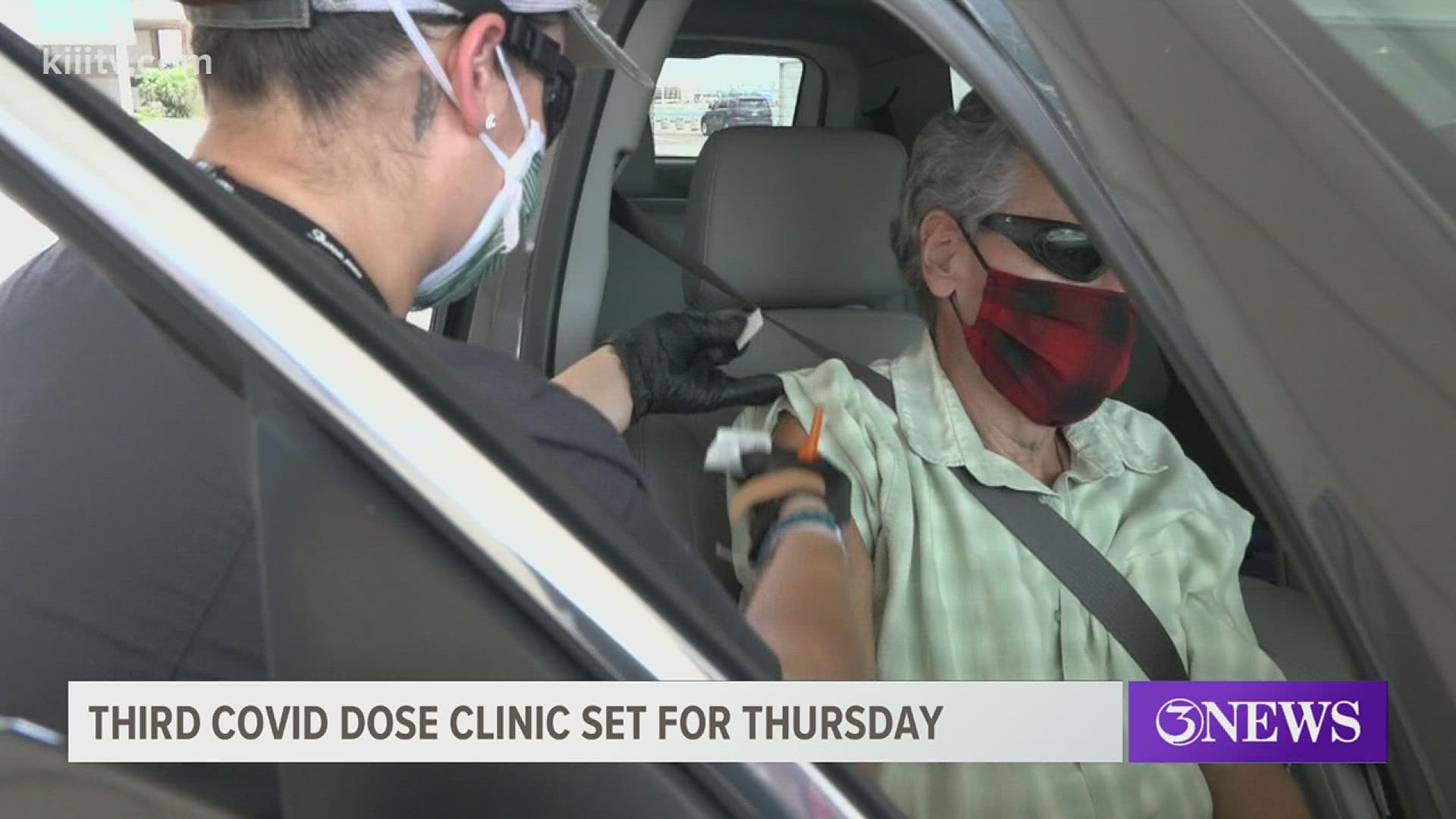CORPUS CHRISTI, Texas — At the American Bank Center, the Health District hosted a third dose mega clinic for people who are immunocompromised. Within two hours of opening, over 200 people were vaccinated.
"I'm a 17-year cancer patient with multiple myeloma which is a cancer of your immune system," a third dose recipient said. "I've already had two shots and MD Anderson said come get a third shot."
Moderna and Pfizer have a high protection rate against COVID-19. A healthy vaccinated person can be about 80 to 90% covered, but for folks who have a compromised immune system, Dr. Onufrak with the health district said that number can drop.
"The majority of breakthrough cases are those with comorbidities, those with immunosuppressed conditions, so some of them have been vaccinated way early and some of them, maybe their last dose was in April or May," Dr. Onufrak said.
She said even though the mega clinic was meant for folks getting a third shot, anyone who wants their first or second dose can go.
"Please come on in," Dr. Onufrak added. "We still want to vaccinate the public. We still want to get to that 60-70%. We're still lagging behind on everybody getting vaccinated."
Because of Wednesday's high turnout, health officials said there will be another mega clinic at the American Bank Center on Thursday.
The Center for Disease Control and Prevention said people should talk to their healthcare provider about their medical condition, and whether getting an additional dose is appropriate for them. Here's who the CDC recommends gets the third shot.
Who Needs an Additional COVID-19 Vaccine?
Currently, CDC is recommending that moderately to severely immunocompromised people receive an additional dose. This includes people who have:
- Been receiving active cancer treatment for tumors or cancers of the blood
- Received an organ transplant and are taking medicine to suppress the immune system
- Received a stem cell transplant within the last 2 years or are taking medicine to suppress the immune system
- Moderate or severe primary immunodeficiency (such as DiGeorge syndrome, Wiskott-Aldrich syndrome)
- Advanced or untreated HIV infection
- Active treatment with high-dose corticosteroids or other drugs that may suppress your immune response

